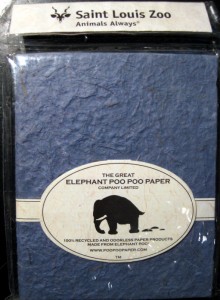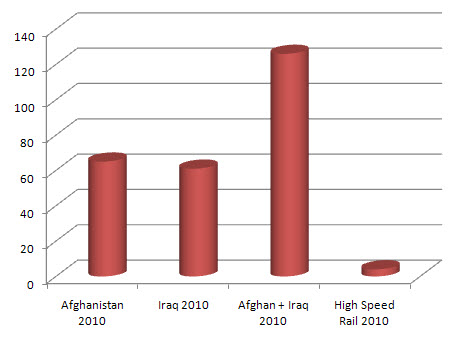I'm getting really tired of greenwashing, so much so that I've creating a new category called "greenwashing" dedicated to these sorts of incidents:
A false or misleading picture of environmental friendliness used to conceal or obscure damaging activities. 
Today I am featuring Exhibit A, "Elephant Poo Poo Paper." It's being featured here as
Exhibit A not because it is the worst offender ever, but because it is my first of a series of incidents of greenwashing I'll be pointing out over the months. It's worth our while to point out greenwashing because these sorts of products help maintain the illusion that we don't need to change our lives dramatically to accommodate Earth's depleted and contaminated resources. All we need to do is to buy cute products and claim that we thereby give a damn.
Now, back to today's featured product: "Elephant Poo Poo Paper," which was recently purchased at the St. Louis Zoo. Just think: we can now make
good use of elephant poop (as though it can't just be left alone to enrich the soil). We can help save the planet by manufacturing heavily-dyed paper and shipping it thousands of miles away from the "elephant conservation parks" where the elephant poo is purportedly gathered and then turned into paper by mixing it with bananas and pineapples.
Buy "Elephant Poo Poo Paper" and feel like you are doing your part to save the world. Better yet, give it as a gift so you can loudly broadcast to others that you are doing your part to save the world.
If it's actually so good to the earth to make paper out of poop, there is a lot of cow poop (among other kinds of poop) just waiting for those who want to be "green" paper manufacturers.


